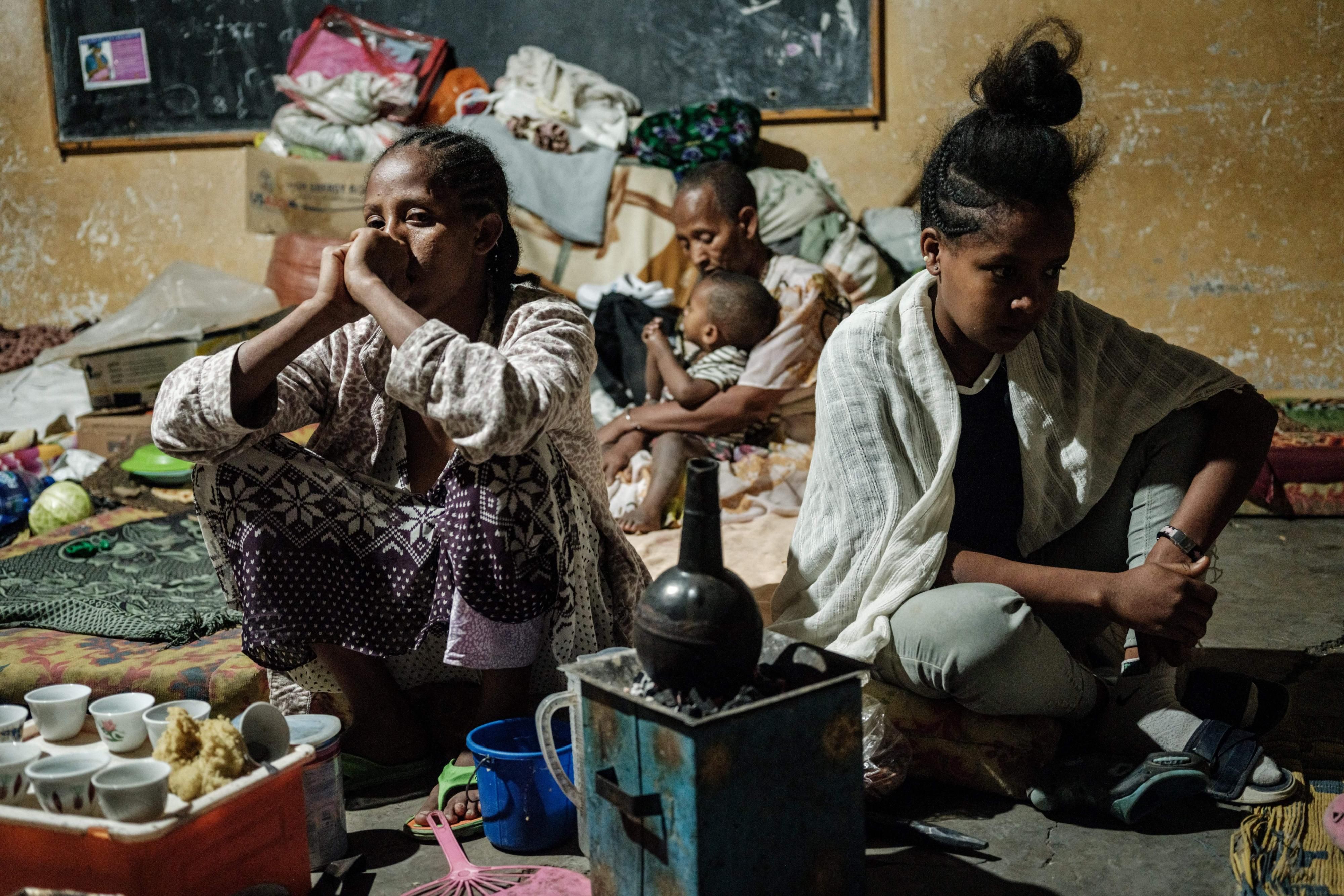
Armed conflict, climate change, economic stressors, and humanitarian aid shortfalls are among the leading drivers of increased gender-based violence, the head of the United Nations' refugee agency said on Friday, International Day for the Elimination of Violence Against Women and Girls.
"There is a shocking, pernicious cycle of hunger and insecurity, each exacerbating the other and fueling risks to women and girls."
"A toxic mix of crises—conflicts, climate, skyrocketing costs, and the ripple effects of the Ukraine war—are inflicting a devastating toll on the forcibly displaced. This is being felt across the world, but women and girls are particularly suffering," U.N. High Commissioner for Refugees (UNHCR) Filippo Grandi said in a statement.
The U.N. agency said that many refugees and internally displaced people can't meet their basic needs due to price inflation and diminished humanitarian aid caused by inadequate funding and supply chain disruptions caused by the Covid-19 pandemic and other disruptors like the Russian invasion of Ukraine.
"With savings depleted, many are skipping meals, children are being sent to work instead of school and some may have no options but to beg or engage in the sale or exchange of sex to survive," said Grandi. "Too many are facing heightened risks of exploitation, trafficking, child marriage, and intimate partner violence."
As UNHCR details:
Among refugee populations in Algeria, Bangladesh, Cameroon, Chad, Ethiopia, Kenya, Sudan, South Sudan, Niger, Tanzania, Uganda, Republic of the Congo, and Zambia, UNHCR has recorded serious nutrition concerns. These include acute malnutrition, stunting, and anemia. Across eastern and southern Africa, more than three-quarters of refugees have seen food rations cut and are unable to meet their basic needs. Inside Syria, 1.8 million people in displacement camps are severely food insecure, while nine in 10 Syrian refugees in Lebanon are unable to afford essential food and services.
Across the Americas, half of those forcibly displaced eat only two meals a day, with three-quarters reducing the quantity or quality of their food, according to UNHCR data. Major deteriorations in food security are projected in Yemen and the Sahel, and millions of internally displaced people in countries like Somalia and Afghanistan live in situations where 90% of the population are not consuming enough food.
"There is a shocking, pernicious cycle of hunger and insecurity, each exacerbating the other and fueling risks to women and girls, as harmful coping strategies are adopted across communities," the agency said.
UNHCR highlighted the case of one South Sudanese refugee who in 2018 fled to Ethiopia's Gambella region, where she is forced to make dangerous forays for food because of a 50% reduction in monthly aid.
"In the camp, the food is not enough, so the only option for some women is to go to the forest to collect firewood to sell," the woman—who did not give her real name but called herself "Roda"—explained. "As women, we face a lot of risks by going to the forest. You need to walk for at least four hours to arrive at a very distant place where you can gather some sticks to bring home."
One day while going to get wood, Roda was attacked by a man. She was able to escape, but he followed her as she hurried back toward the refugee camp and she remains truamatized by the incident.
"This is not an isolated occurrence," Roda stressed. "Many women have found themselves in these sorts of situations many times. If food was available at home, women would not need all these risks."
This content originally appeared on Common Dreams - Breaking News & Views for the Progressive Community and was authored by Brett Wilkins.
Brett Wilkins | Radio Free (2022-11-25T16:58:41+00:00) Raging Wars, Soaring Hunger Put Women and Girls in Crosshairs, Warns UN. Retrieved from https://www.radiofree.org/2022/11/25/raging-wars-soaring-hunger-put-women-and-girls-in-crosshairs-warns-un/
Please log in to upload a file.
There are no updates yet.
Click the Upload button above to add an update.